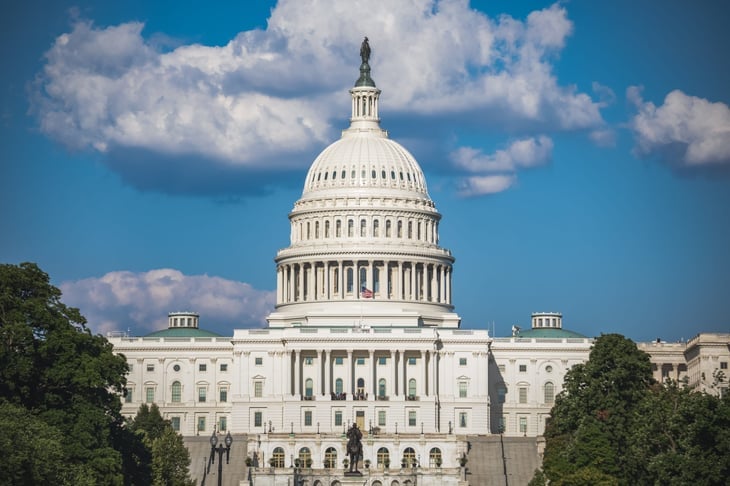
Every time you swipe your credit card at the store, the store pays a small fee to your credit card company for your business — and these fees, called interchange fees or swipe fees, have been at the center of a big debate for decades.
At the end of March, Visa and Mastercard reached a “landmark settlement” after “nearly 20 years of litigation” — and, if approved, it could change the way consumers use credit cards in the future.
Here’s a quick look at how the settlement works and what could change.
First, the settlement needs to be approved

While the credit card companies and “merchants” — businesses, most of which are small businesses — have agreed to settle, a court still has to sign off on the deal. That is not likely to happen until late this year, according to Reuters.
The proposed settlement would lower the interchange fees — which average about 1.5% to 3.5% of a purchase made by credit card — temporarily. Over five years, those changes could be worth as much as $30 billion, by some estimates.
Businesses that are unhappy with the terms of the settlement could object to it. Groups like the National Association of Convenience Stores and Retail Industry Leaders Association have already noted that the settlement is relatively small.
Small banks and credit unions may also be unhappy and feel shouldered out of deal-making, Reuters notes.
Supposing the settlement does receive approval, however, several things could happen that affect consumers.
Some credit cards may make certain purchases cheaper

One reason small banks and credit unions might oppose the deal is out of concern big banks and big businesses could partner up, creating a situation where certain credit cards offer discounts at certain chains.
Changes caused by the settlement would allow businesses more latitude to encourage or “steer” customers toward specific payment options which just so happen to be cheaper for the business, MarketWatch notes.
Consumers are already familiar with this idea in terms of cash discounts at gas stations: We are encouraged to pay with cash because it saves both us and the gas station money by cutting out the credit card middle man.
While in theory this could make things cheaper for consumers, it also seems possible the most cost-conscious people could end up with bulkier wallets — carrying around several different credit cards to make sure they get the best deals everywhere.
More purchases may have surcharges

Ever notice when you pay a bill with a credit card — whether it’s a utility bill or at a restaurant — there’s a surcharge for doing so?
This is already allowed to a certain degree, although some states make it more obvious than others. But the settlement would simplify surcharge rules and cap such fees at 1%, MarketWatch says.
The rule change may lower fees in some places, but also allow them to become more commonplace.
Credit card rewards could shrink

Perhaps the most visible possible change is to credit card rewards programs — whether they feature cash back, airline miles or other perks.
Such programs are often fueled by the interchange fees at issue in the settlement — and if fewer fees are being charged, there will be less money in the pot for rewards. Lenders may decide to revamp or scale back reward programs to make them less valuable.
For people big into reaping credit card rewards, it may be time to get while the getting’s good — both to rack up points and to redeem them.
Other possible changes

The proposed settlement between credit card companies and merchants comes under the shadow of potential laws that could force major changes anyway — and which could still happen, as we note in “Could New Legislation Hurt Your Credit Card Rewards?.”
U.S. Senator Dick Durbin (D-IL), who has sponsored legislation called the Credit Card Competition Act that would go further than the settlement does, was quick to comment that more needs to be done to limit swipe fees:
At a time when hard-working Americans and small business owners are struggling with higher costs of everyday essentials like gas and groceries, reducing the cost of swipe fees should be welcome news. However, I fear that this deal only provides temporary concessions negotiated by a few lawyers behind closed doors.
If you want to let your senators know how you feel about Durbin’s bill, the Credit Card Competition Act, contact them.




Add a Comment
Our Policy: We welcome relevant and respectful comments in order to foster healthy and informative discussions. All other comments may be removed. Comments with links are automatically held for moderation.